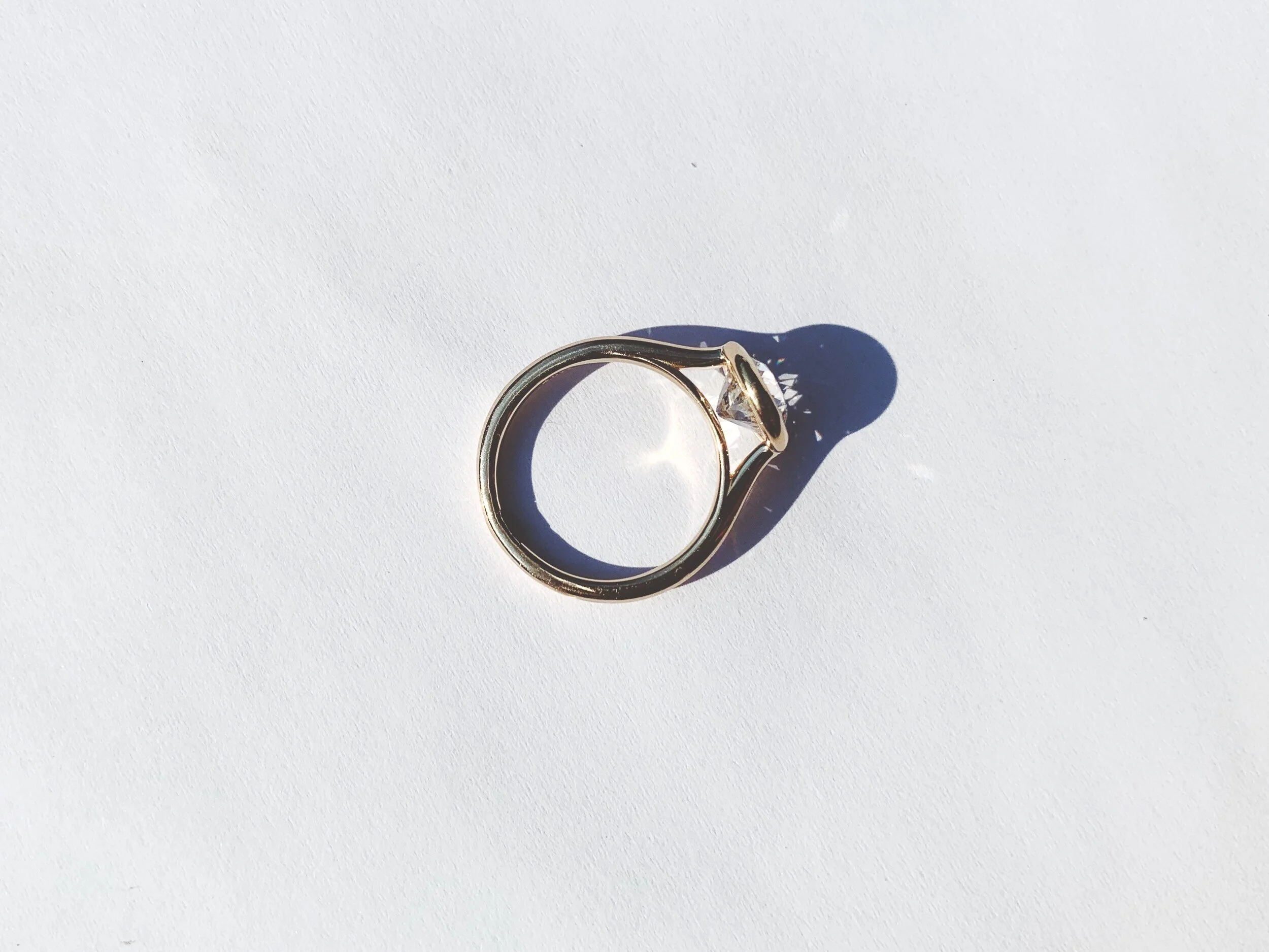How to Care for Your Jewelry
STONE CARE INSTRUCTIONS
We use semi-precious and precious stones in our jewelry. Some stones are more fragile than others and need to be handled with care. As a general rule, if you're unsure about whether it's a good idea to wear your jewelry in a given situation, choose the safer option and remove it. Olivia Kane is always available to consult with you about any care questions.
Please note, Olivia Kane covers the cost of all repairs under normal wear for the first six month after purchase. However, if the ring is noticeably bent, shows improper care, or is damaged in any other manner, we will repair the ring at cost. After the first six months, Olivia Kane will perform repairs for a fee. If any jeweler other than Olivia Kane makes alterations or repairs to your jewelry, the Olivia Kane warranty will be voided.
If your Olivia Kane piece requires service, please email hello@oliviakane.co for assistance. We are also happy to make minor adjustments to jewelry, including resizing, for an additional fee.
WHEN NOT TO WEAR YOUR JEWELRY
Avoiding impact, pressure, and extreme temperatures is crucial to the maintenance of your jewelry. Gold and gemstones can chip, crack, scuff, or scratch if they’re knocked hard enough or at the wrong angle against another object. Harsh chemicals such as bleach can ruin stones, pit metals, and weaken settings, causing loose or lost stones. Chlorinated water can also react chemically with stones and metals, changing the color or weakening settings.
Although it can be tempting to wear your jewelry all the time, please remove when you are:
• Exercising and sleeping: the heat and pressure that occurs during exercise and sleep can wreak havoc on delicate fine jewelry.
• Showering, bathing, swimming, and cleaning: chemicals, perfumes, and other harsh oils in beauty and cleaning products, not to mention chlorine in pools, can ruin the stones in your jewelry.
• Using a sauna or steam room.
• Painting your nails, or removing nail polish.
• Cooking, baking, or doing dishes.
• Gardening, painting, or throwing pottery.
FIND YOUR STONE BELOW
Diamond: Any stone, including a diamond, will break if it’s hit hard enough in the right place. Toughness is a measure of how well a gem can survive an impact and resist breaking, chipping, or cracking. Diamonds are tougher than any other gemstone, however a hard blow can still cleave a diamond. Diamonds are invulnerable to virtually all acids and chemicals, but sudden and extreme temperature changes can cause thermal shock and create fractures and cleavages or cause existing ones to spread. Diamonds can be cleaned safely with lint-free cloths, commercial jewelry cleaning solutions, and household detergents. Harsher cleaning methods are not recommended for home use. These include powdered abrasive household cleansers, ultrasonic cleaners, and steam cleaners.
Emerald: Emerald requires more care in wearing than ruby or sapphire. Heat can damage emeralds, and chemicals can cause the stone to alter in appearance or deteriorate. Ultrasonic vibrations and hot steam can weaken stones. Using warm, soapy water coupled with gentle scrubbing is the safest way to clean emeralds.
Opal: Opals are very delicate stones that need a lot of care. If your opal has extended exposure to hand cream, hand sanitizer, hand wash, hand wipes, oils, chlorine, household chemicals, perfume, or saltwater, this can irreversibly harm your opal, even if the damage is not immediately apparent. It is best to remove an opal ring or necklace when showering or bathing, or if you know you will be swimming for long periods of time. For Ethiopian opals, which are also known as the hydrophane ("water-loving") opal and can absorb liquid much like a sponge, extreme care needs to be taken. If an Ethiopian opal is left underwater, its brilliance may change from opaque or semi-translucent to translucent or transparent.
Opals can also become dry if stored improperly. Due to their water content, if an opal is kept in an environment with dry conditions, it can dry out and crack. They are best stored in a soft cotton cloth, and if you need to store your opal for a long period, it is a good idea to keep it in a sealed plastic bag with a damp piece of cotton to prevent dehydration. Opals are also vulnerable to cracking if exposed to rapid changes in temperature. To clean an opal, never use a steamer or ultrasonic, keep away from harsh cleaning agents, perfume, high temperatures, or sudden temperature changes. Simply wipe with a clean soft cloth.
Moonstone: Moonstone is prone to breaking if knocked hard. High heat or sudden temperature change can cause breaks in moonstone. Please use warm soapy water for cleaning—ultrasonic and steam cleaners are never recommended.
Sunstone: Sunstone is vulnerable to damage if knocked too hard. Exposure to heat is not recommended for sunstone, but its color is stable when exposed to light and won’t fade. Warm, soapy water is always a safe sunstone cleaning method. Ultrasonic and steam cleaners should be avoided. Cleaning products containing bleach should also be avoided. These stones should only be cleaned with warm, soapy water.
Topaz: Topaz requires special care. It is a relatively soft semi-precious gemstone, so a hard blow might split it, and extreme pressure or sharp temperature changes might cause it to break. Topaz is affected only very slightly by chemicals, but please take care when washing your hands with abrasive soap, or when cleaning with chemicals. It’s important to avoid steam or ultrasound for cleaning topaz: Warm, soapy water works best.
Turquoise: Though turquoise is stable to light, high heat can cause discoloration and surface damage. It dissolves slowly in hydrochloric acid, and it can be discolored by chemicals, cosmetics, and even skin oils or perspiration. It’s safe to clean turquoise jewelry with warm, soapy water, but it should never be cleaned with steam or ultrasonic cleaners.

